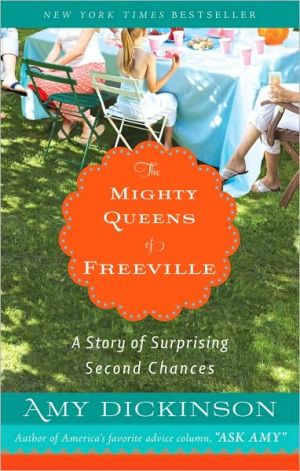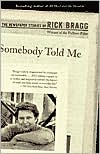Love Matters: A Book of Lesbian Romance
Love Matters: A Book of Lesbian Romance and Relationships is a collection of advice columns and personal reflections that will help lesbian couples validate and appreciate their unique relationships. With excerpts taken from the author’s “Love Matters” column in the lesbian newspaper New Phazes, this book explores real-life questions and issues that lesbians have about dating, sex, love, and relationship longevity. From Love Matters, you’ll receive honest, informative advice that can help you...
Search in google:
Love Matters: A Book of Lesbian Romance and Relationships is a collection of advice columns and personal reflections that will help lesbian couples validate and appreciate their unique relationships. With excerpts taken from the author’s “Love Matters” column in the lesbian newspaper New Phazes, this book explores real-life questions and issues that lesbians have about dating, sex, love, and relationship longevity. From Love Matters, you’ll receive honest, informative advice that can help you and your partner share a more open and fulfilling relationship.Offering support, care, and understanding for lesbian couples, Love Matters seeks to recognize the “new female role” for lesbian women. Using her 15-year long relationship as a basis for many of the responses, the author provides you with suggestions and insight into topics relating to lesbian relationships, such as: keeping sex alive in a long-term relationship handling finances fairly and successfully supporting your partner through the physical, emotional, and spiritual changes caused by menopause identifying the difficulties of dating and what lesbians look for on a date questioning the purpose of and emotions caused by a long-distance relationship realizing how homophobia affects love and relationshipsWhile focusing on the joys and experiences of couples, this book also addresses depression and loneliness felt by single lesbians, break-ups, and the death of a partner. You’ll find that Love Matters offers comfort, hope, and humor that will help you understand the difficulties and rewards of your lesbian relationship. Booknews Sutton, psychotherapist and columnist in the Colorado Springs lesbian newspaper , reprints her challenging but humorous advice columns, addressing an array of love-related issues from keeping sex lively in a long-term relationship to handling money issues. Annotation c. Book News, Inc., Portland, OR (booknews.com)
\ \ \ \ \ Chapter One\ \ \ The Beginning\ \ \ Hello. My name is Linda, and I'm a relationship fanatic. I eat, drink, and sleep relationships—on the job, in the home, in much of my spare time. In fact, lesbian love—thinking about it, talking about it, living it (as I do daily with my beloved partner, Maureen)—is perhaps my greatest passion in life. So now I even get to write about it, in a monthly question-and-answer column, lesbian Love Matters. Sort of like having your cake and eating it too.\ My perspective may be slightly different from some of my lesbian sisters (whose lesbianism was determined at birth) because, as a radical feminist from the 1970s, I chose lesbianism after a young adulthood spent living the alternative. Yes, I've chosen lesbianism (over and over again, I might add). We former heterosexuals may be a well-kept secret in some circles (and some might prefer we stay that way), but I'm having way too much fun in my thirteen-year relationship with Maureen not to share this secret with others. In lesbianism I have found my spiritual, emotional, and sexual center, and that compels me to write about the truth of my lesbian experience.\ Women are relational by nature—highly concerned, if not consumed, with those they love. It's therefore no surprise that relationship questions are a hot topic of conversation among all lesbians I know. "Why are so many lesbian relationships so short-lived?" "What always happens to the sex in lesbian sexuality?" "What impact does homophobiahave on intimacy?" "Can you sleep with a man and still call yourself a lesbian?" "What makes relationships so damn hard, anyway?" These are the kinds of issues being raised day in and day out in my psychotherapy practice, in bed at night with Maureen, on the phone for hours with my girlfriends. So, given my obsession and everyone else's interest, I thought a lesbian relationship column might attract a following.\ I also wanted to help level the political playing field here in Colorado Springs where homosexuals have been under siege by Amendment 2, Colorado's anti-gay amendment. Since, in Colorado Springs, it seems that everything in print these days is anti-gay, I think homosexuality deserves some good press for a change.\ Lesbians are in the closet in more ways than one. Despite the close friendships many of us seem to have, the self-help books we read, the therapy dollars we've spent, much of the real truth about our intimate relationships—the sorrow and the joy—remains hidden. Hidden even from our partners and ourselves, at times. The degree of isolation in much of the lesbian community, the "lies, secrets and silences" (to borrow a phrase from Adrienne Rich) makes me terribly sad. So one of the purposes of this column is to bring our relationship issues out of the closet so that we can normalize them. Another purpose for this column is to provide a forum in which to celebrate the miracle that is lesbian love.\ All love is hard. Lesbian love is harder—given the toxic effects of discrimination, the ways in which our love is devalued, dismissed, and degraded, the rejection and harm we risk if we're honest about our love or the self-hatred and depression we risk if we conceal our love. Long-term lesbian relationships are not for the fainthearted. Many couples are out there struggling to make their relationships work under the worst of odds. They need acknowledgment, encouragement, and visibility. They also need support. I hope this column can offer support.\ This column is also for me. Relationship fanatics need forums too. I want to be able to share the passion I feel for all of us who dare to love and be loved, and I especially want to share the passion I feel in my relationship with Maureen. So this column will be a further step in my own coming-out process as a lesbian and as a lover. This past September, I turned fifty. I think this column has something to do with that passage as well. I'm now beyond the reproductive years and, although I birthed the only child I ever wanted, I feel a profound sadness upon losing the reproductive option. I want to move through my menopausal years with consciousness and stay awake to the promise and possibilities of mid-life. This column feels like part of that promise—a way of transforming my reproductive energy, a way of becoming an elder, a way of sharing my life stories. I'm also becoming a crone. From what I've been told, crones get to say whatever we think, whenever we want, without ever being held liable!\ A few disclaimers: although I am a seasoned psychotherapist, I want this column to speak more from my personal point of view, rather than from my clinical experience. I am not pretending to be a relationship expert. Frankly, I don't believe in such beings. I approach my own relationship with an incredible amount of humility, a "beginner's mind." Any suggestions I might venture to make are not necessarily what I'm practicing at home. This column, therefore, cannot be a replacement for your own good sense and/or professional help. And, you are hereby cautioned against using any of my words as ammunition in the next fight with your girlfriend.\ So, start sending in your questions. I'll be composing my own until I hear from you.\ In the meantime, don't ever forget, your love matters.\ \ \ Sex Lives\ \ \ My research shows that the frequency of sex among lesbian couples drops off dramatically after the first year, then keeps sinking, sort of like Beethoven's Fifth: Dah Dah Dah ... Dum.\ \ \ JoAnn Loulan\ Lesbian Passion\ \ \ \ "Dah Dah Dah ... Dum." Does Beethoven's Fifth describe your sex life, now or in the past? I've read a couple of studies, but there are probably more than that. What I've read, and the experiences I hear, seem to indicate that lesbian couples have very passionate, very frequent sex when they first meet; but the frequency and passion wear off pretty early into the relationship. A study by Blumstein and Schwartz (as reported in Lesbian Couples [1988] by Clunis and Green) found that lesbian couples have sex less often than any other type of couple at every stage of their relationships. The Loulan study, as reported in her book Lesbian Passion (1987), surveyed 1,566 single and coupled lesbians. Although this study used a nonrandom approach and lacks generalized validity, it does indicate some definite patterns. In regard to frequency, the Loulan respondents said that in a typical month: 12 percent never have sex; 19 percent have sex once or fewer times; 35 percent, two to five times; 20 percent, six to ten times; and 14 percent, eleven or more times. For couples, the incidence of partner sex decreased, on the average, from ten to twelve times a month in the first year of a relationship to four to six times a month by the end of three years. These are the results from the lesbians who are willing to talk. What about those lesbians who are not talking? So, although many lesbians say they love sex and want it more often, it appears that their actual sex lives do not reflect their desires. What's going on?\ First, let's take a look at that "honeymoon" period. That's the time in which we've recently become attracted and have decided that we like each other well enough to make love. And we do. And it's fantastic. Who can ever forget what "honeymoon sex" feels like? In that stage, we stay up all night getting to know each other and have sex. And have sex. And have sex. That's the period in which we are in such a daze that we miss work, forget to eat, dump all our friends. It's during the "honeymoon," we find ourselves saying such things as:\ \ \ I feel like I've known her my entire life.\ I've never felt so close to anyone before.\ It's the most extraordinary sex I've ever had.\ \ \ These feelings are particularly true for lesbians. There is a special magic in lesbian love. An incredible bonding does take place. We merge. We feel completely connected. It's so sweet! And the sex is so compelling, we can think of nothing else. We are under, what I've affectionately coined, the mating spell. And it is a spell, a real phenomenon. It is not an illusion. It is a true biochemical high, a built-in evolutionary mechanism designed to compel us to have sex and to fall in love. The biochemical high overrides everything else: how we feel about ourselves, who our new partner really is, what the world thinks about us. And it is the high that creates the expectation that this relationship really will be different. Based on this expectation, we make a commitment to be together. These feelings can't lie, we think.\ Only the high is not designed to sustain the relationship. It's only designed to create the relationship. Once we've mated, the high begins to dissolve. The sexual passion decreases. Other relationship demands surface. A different reality settles in. We argue more and make love less. Now we find ourselves saying:\ \ \ I feel like I don't even know her anymore. Sex has become so routine, so predictable, so boring ... I love her, but I'm not sure I'm in love anymore.\ \ \ Once a commitment is made, it seems as if our relationship changes dramatically. We've gotten to know each other well enough that our "little selves" emerge—the sad infant, the scared toddler, the rebellious teenager. We start hurting, disappointing, and resenting each other. Our differences surface. They intimidate us. We have difficulty accepting our partners or (even) ourselves. Our everyday realities distract and overwhelm us—work, money, health, family. We become blaming, disconnected, polarized. Our sex lives suffer.\ And lesbian sex has unique hardships—secrecy, sexism, oppression. How can we sustain passion in the midst of wounded hearts, hiding, and hatefulness? ... with great difficulty, if at all. These hardships affect how we feel about ourselves, how we feel about each other, how we feel about sex. After awhile, it becomes easier to be just the roommates that everyone wants us to be. For some couples, this loss of sex seems not to be a problem (at least that's what some women report). Other couples have found ways to keep their sex lives alive (write and tell us how). But most couples report that their sex lives have suffered and, at least one, if not both members of the couple, experience this loss as very significant and extremely painful. At this point, many lesbians break up or seek an affair ... anything to get that magical feeling back.\ So, what's called for here? Quick Fix? Easy answers? Twelve-step sexual recovery program? I don't think so. Anyone offering simple solutions is a liar. There are no simple solutions. Sex is a tangled web. How can something feel so good and be so difficult? But it is. It really is. And, if we start with the expectation that sex is hard and requires work (once the honeymoon is over), we'll have a good beginning to a difficult problem.\ With sex and every other relationship issue, you are going to hear consistent advice from this column. Be willing to do whatever work it takes to stay connected to each other, despite the problem.\ \ \ Take 100 percent share of the responsibility.\ Increase your awareness.\ Change your expectations.\ \ \ Then, and only then, do you have a working relationship.\ In the meantime, don't ever forget, your love matters.\ \ \ Relationship Polarity\ \ \ Question: My girlfriend, Tess, and I have a problem. Both of us were pretty closeted before Amendment 2. Since then, I've become very active in the gay and lesbian movement. That activity has really helped me feel better about who I am. Tess is shy, has trouble with her self-esteem, and remains pretty homophobic. I think she could really benefit from getting involved in the movement, as I have. I keep trying to find ways to persuade her, but the more I talk, the more she withdraws. The more she withdraws, the angrier I get. What do you think we should do?\ \ \ Cindy, Out and Liking It\ \ \ Answer: Your problem sounds like a classic example of what I call relationship polarity. Practically every relationship has its share:\ \ \ I want sex. She doesn't.\ She likes to eat out. I like to cook.\ I jog five miles a day. She's a couch potato.\ \ \ In the beginning of a relationship, these differences don't seem to bother us. They might even excite us. Or, they might not have emerged yet. But as the relationship progresses, the differences cause conflicts, and polarization sets in. What are our options when relationship polarities occur?\ \ \ Approach Number One\ \ \ This is usually the first line of defense—the most comfortable and most familiar, the "I'll just try to change her" approach. Cindy and Tess seem to be stuck in this approach. Both partners will try this approach as often as they can get away with it, but they usually have different styles. There's the overt style, which Cindy seems to be using. She's directly telling Tess what's best for her. And there's the covert style. Tess is more covert, it seems—the "I'll just withdraw until she gets tired of asking me" approach. Whether its overt or covert, the goal is still the same. Let's see who can control this situation. Although this approach often has some short-term gains, in the long run, it's a relationship Dead End. Before you know it, Tess will withdraw right out the front door with her suitcase in hand.\ \ \ Approach Number Two\ \ \ When persuasion, pleading, and ultimatums don't work, many couples will turn to compromise or negotiation. "Okay," says Cindy, "if you agree to come to at least one Ground Zero meeting, I'll agree to clean the house for the next five years." Or, "I've got an idea," says Tess, "you get off my back about this, and I'll do your laundry for the rest of my life." Now some relationship differences might really lend themselves to approach number two: for instance, if you're fighting about which restaurant to eat in tonight, which TV show to watch, which vacation to take. Compromise, negotiation, even capitulation can work when neither partner is required to give up or lose what she feels to be a vital part of herself. Tess and Cindy's problem, however, does not appear to fall into this category. They both seem to have too much to lose here.\ \ \ Approach Number Three\ \ \ This approach is designed for struggles in which one, if not both partners, feel that their very survival is at stake. By survival, I mean a perceived sense of loss of love and/or loss of self. True or imagined, such losses might feel life threatening—like you really might die. Survival issues are often at the root of relationship struggles. They are what make us feel so entrenched in our positions.\ I wonder whether survival issues aren't at the bottom of Tess and Cindy's problems. For instance, it sounds as if Tess feels very threatened by the idea of coming out. Does Tess fear rejection by her parents? Loss of job? Fear about physical safety? Does Tess fear loss of self if she gives in to Cindy's demands? And what about Cindy's survival issues? She sounds pretty threatened, too. Could Cindy fear the loss of Tess's love now that their interests are in conflict? Does Cindy feel scared and alone out there in the world without Tess? How safe does Cindy feel now that she is out of the closet? Is she as comfortable as she professes? I don't know. I'm only guessing.\ What I do know is that this kind of relationship polarity calls for great understanding, compassion, and acceptance of each other. It presents a challenge and an opportunity to more deeply connect to each other through getting in touch with the feelings that underlie the positions and the polarity. Herein lies one of the greatest relationship tools—a genuine willingness to know yourself and your partner on a deeper level. If I were Cindy, I would want to know what Tess is afraid of losing. Is she really afraid of coming out and, if so, why? Is Tess afraid of losing herself to Cindy, and what would make her afraid of that? Is it true that Tess is shy and her self-esteem is low? If true, how did that happen? If I were Tess, I would want to know why this issue is so important to Cindy. What was keeping Cindy in the closet before Amendment 2? Why is it that Cindy feels better about herself now that she is out? What does it feel like for Cindy to be in the movement without her partner? How confident is Cindy in Tess's love? What does Cindy feel she would gain by Tess's involvement? What is it that Cindy is afraid of losing?\ So, my advice to Tess and Cindy: Don't resist the polarity, embrace it. Your relationship struggle is ripe with opportunity. You can choose to use this difference to polarize and misalign or you can choose to use this difference to deepen your connection and realign. Which will it be?\ And how about the rest of you out there? How are you choosing to use the polarities in your relationships?\ In the meantime, don't ever forget, your love matters.
AcknowledgmentsThe Beginning3Sex Lives9Relationship Polarity15Finances21Breakup Rates29Menopause35Long-Distance Relationships41Dating47Forty Secrets for a Happy Relationship53The Right Person57How to Keep Love Alive61Misery Side of Misery/Bliss Ratio69Bliss Side of Misery/Bliss Ratio75Play81Anniversary Story87Fair Fighting93Death of a Partner103Publication of Love Matters109Good Enough Relationship115Jealousy123Depression131Solitude139Mothering147Singlehood155Busyness163Saying Good-Bye169My Turn177My So-Called Ending181Bibliography187
\ BooknewsSutton, psychotherapist and columnist in the Colorado Springs lesbian newspaper , reprints her challenging but humorous advice columns, addressing an array of love-related issues from keeping sex lively in a long-term relationship to handling money issues. Annotation c. Book News, Inc., Portland, OR (booknews.com)\ \ \ \ \ OutDefinitely a book for women who are—or who want to be—in a relationship.\ \








